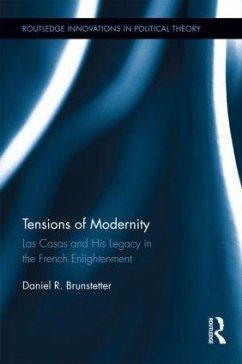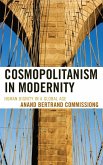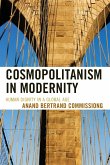Politics today is marked by tension between claims of universal human rights and diversity. From the war on terror to immigration, one of the major challenges facing liberalism is to understand the scope of equality in a world in which certain peoples are perceived to reject and/or violently resist democratic principles. This book revisits Europe's initial encounter with the Native Americans of the New World to shed light on how the West's initial defense of so-called 'barbarians' has influenced the way we think about diversity today, and elucidate the arguments of exclusion that unconsciously permeate the moral world we live in. In doing so, Daniel R. Brunstetter traces Bartolome de Las Casas's oft heralded defense of the Native Americans in the sixteenth century through the French Enlightenment. While this defense has been rightly lauded as an early example of human rights discourse, tracing Las Casas's arguments into the eighteenth century shows how his view of equality enabled arguments legitimizing the annihilation by 'just' war of those perceived to be 'barbarians'. This philosophical narrative can be useful when thinking about concepts such as just war, multiculturalism, and immigration, or any area in which politics confronts radical difference.
Where is the boundary line between civilization and barbarism drawn? When is the Other really Other, and thus no longer deserving of rights? Daniel R. Brunstetter expertly examines the place of inequality within the liberal thread of modernity by turning to the intellectual history surrounding the European discovery of the New World, and the notion of the human that emerged from the intellectual debates about the rights of the Indians.
Where is the boundary line between civilization and barbarism drawn? When is the Other really Other, and thus no longer deserving of rights? Daniel R. Brunstetter expertly examines the place of inequality within the liberal thread of modernity by turning to the intellectual history surrounding the European discovery of the New World, and the notion of the human that emerged from the intellectual debates about the rights of the Indians.








